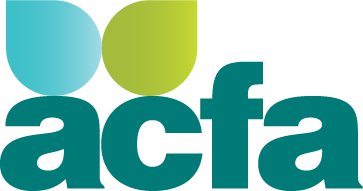At the end of 2016, the State Council appointed the National Development and Reform Commission (NDRC) to develop a multi-channel solution to the country’s “aged grain” problem, after China had accumulated a massive grain stockpile mountain of 200m MT (est.). For five years, the Ministry of Agriculture and the State Administration for Grain had repeatedly sought support from the State Council to assist with a solution to reduce the colossal, and continuously growing grain mountain, as the product quality was rapidly deteriorating while eating up vast amounts of money in terms of subsidies and other fiscal allocations.
The much-needed restructuring reform for the agricultural supply industry triggered the September 2017 energy policy roll out, jointly announced by the National Development and Reform Commission (NDRC) and the National Energy Administration (NEA), to promote the use of Ethanol gasoline nationwide in vehicles as of 01-Jan 2020. China's cabinet confirmed that it will speed up the use of the nation's grain stockpile by promoting industrial consumption of aging grains.
The state council re-confirmed the planned E10 decree in August 2018 by promoting the programme in additional 15 provinces but, at the same time, the initially assumed nationwide mandated implementation had been turned into a rectified “if and where appropriate” logical positioning. This change transpired after a number of challenges emerged.
Apart from the apparent supply shortage (2019 domestic production output estimated at 3.5m MT/y versus an assumed demand total of 13m MT/y), which widened as the US-China trade war escalated further, resulting in sharply reduced fuel-Ethanol imports, deep concerns grew from consumer and energy industry side. Cost estimates showed that the implementation of E10 gasoline nationwide will cost the country in excess of 40bn US$, in terms of upgrading refineries and infrastructure as well as idling existing ether manufacturing units which were promoted till date to meet the country’s clean fuel standards. Beyond this, China had a long-term, high fuel-Ethanol subsidy in place, which has been phased out since 2010, making production of fuel-Ethanol less lucrative. This, coupled with the public’s general rejection of the biofuel, due to lower energy density, compared to conventional gasoline, has reduced production and supply interest further.
2019 Developments
By the end of October this year the Financial Times reported about the current situation, highlighting the fact that China is pulling back on its Ethanol fuel content, based on a logical and pragmatic approach due to the lack of raw material supply and genuine concerns from the petroleum industry.
According to some market surveys conducted by the end of 2019, only three of the 15 designated provinces had started to implement the E10 directive, with mixed success. No further roll-outs were scheduled, apart from the current measures undertaken in the Shanghai municipality. In Henan province E10 gasoline has been holding a 57% market share in 2018, even though local governments mandated the use of Ethanol fuel since 2004. Another example is the northern city of Taiyuan which rolled out E10 gasoline on 01-October 2019 while a number of local petrol stations do not offer Ethanol-blended gasoline till date.
China’s state-owned oil majors are also reluctant to pay for the E10 bill, as Ethanol-blending is now widely considered to become a loss-making business, without any subsidies in place for refiners to convert or upgrade their facilities and/or idling their existing ethers capacity, while direct Ethanol subsidies have been discontinued since 2016.
Having noted the constraints that lay ahead, a consideration was made for a revised proposal to implement E5 gasoline instead in 2019. The Asian Clean Fuels Association responded to the request for comments in June last year, submitting recommendations to China’s biofuel solution. In its paper, ACFA predominantly referred to the European Union “flexible approach”, using a mixed regional approach where fuel ethers continue to be used, where fuel-Ethanol supply is not available or constrained by logistics, as a possible solution for China. This would help the case for the Chinese government to:
Maintain current clean fuel leadership
Improve air quality
Valorise domestic raw materials
Decrease crude oil dependency
Increase energy security
Biofuels in the European Union (EU)
Like China, the EU has serious and long biofuels implementation commitments and the same initially strong, political will and push, albeit with slightly differing drivers as China. When the Renewable Energy Directive (RED1 2009/28/EC) was legislated in 2009, the EU made E10 mandatory for all member states by 2020. However, now in 2019, EU’s biofuels commitment ranges from 0% to 10% Ethanol equivalent and differs across member states. Initially targeting E10, Europe exploited accumulated experience and adjusted accordingly. Due to various reasons such as lack of Ethanol supply, infrastructure and costs, EU’s Ethanol blending ambitions scaled back and is currently at a de-facto averaging E5.
From an environmental consciousness and safeguard, this is seen more as a success. In 2018, EU came out with the RED2 Directive (2018/2001/EU), where first generation biofuels are capped at 7%. The RED2 Directive eliminated EU’s biofuel obligation and, instead, creating a small target to promote second generation biofuels.
Other countries in Asia have also adjusted their biofuel policy to local conditions. Vietnam, too, had an initial plan to push for E10 as part of its biofuel ambitions. However, due to the pressure of its inability to produce adequate supply of Ethanol, the Vietnamese government promoted E5 to replace its 92RON conventional grade and allowed for its 95RON fuel which is mainly imported to contain MTBE and other oxygenates. This strategy allows Vietnam to push ahead its biofuel mandate using E5, as well as optimising its overall production and supply chain.
Another similar case is India, where due to inadequate, domestic Ethanol supply, it replaced E10 with E5 to allow a more successful nationwide penetration of the biofuels mandate.
Current Situation
After much deliberation about the subject and in response to changing conditions, the Chinese government has decided to suspend its plan to implement a nationwide gasoline blend containing 10% Ethanol this year, following a sharp decline in the country's corn stocks and limited production capacity of the biofuel, according to various press newswires published in early January.
Industry insiders including producers, traders and analysts said the government rollout of the mandate has significantly slowed or stalled, with few new plants built or markets opened in the past few months. Reaching the 2020 target would have required about 15m MT of the biofuel annually, more than four times current output, or some 45m MT of corn, which is about 16% of the country's current consumption.
The country does not disclose state grain reserve levels but state stockpiles of corn have fallen to around 56m MT in recent months from more than 200m MT in temporary reserves in 2017, a government expert said in September last year.





.svg)
.svg)
